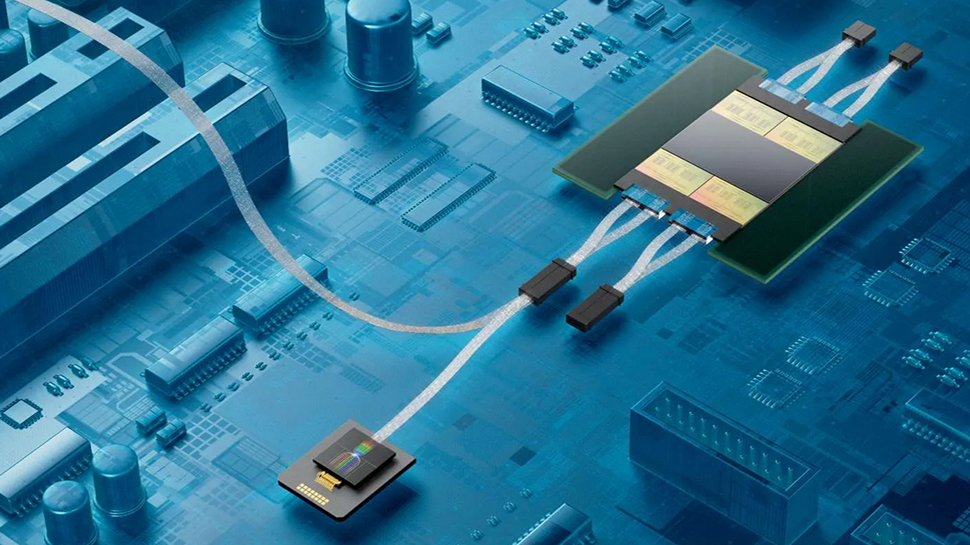'Copper’s time has run out': Nvidia, AMD and TSMC have invested millions in a startup which may hold the key to faster chip connectivity to quench AI's thirst for bytes
Optical interconnect pioneer Ayar Labs is now worth $1 billion

- Ayar Labs is valued at $1 billion and is at the cutting edge of silicon photonics
- The firm has raised money from a flurry of investors including Intel and Global Foundries
- It says copper has almost reached its physical limitations for chip interconnections, and now it wants to see what is next
The rapid expansion of AI has brought unprecedented challenges to data movement within AI infrastructure, in particular for traditional copper interconnects, once sufficient for data transfer, but which now struggle to meet the demands of increasingly complex AI models.
This bottleneck has led to inefficiencies in compute performance, energy consumption, and overall scalability, and addressing these issues is crucial as AI adoption continues to grow across industries, requiring a more efficient solution for managing the massive data flows demanded by AI training and inference.
Ayar Labs, an optical interconnect technology startup founded in 2015, is stepping up to meet this challenge and the company recently announced the completion of a $155 million Series D funding round with investments from AMD Ventures, Intel Capital, and Nvidia, bringing its total funding to $370 million and pushes its valuation past $1 billion.
Ayar Labs' seeking pivotal role
The financing is aimed at accelerating the high-volume manufacturing of Ayar Labs’ in-package optical interconnects, a technology designed to replace traditional electrical I/O and overcome the limitations of copper and pluggable optics.
Ayar Labs’ optical I/O technology eliminates traditional interconnect bottlenecks by enabling data movement at speeds required for large-scale AI workloads. By reducing latency, power consumption, and operational costs, the technology helps optimize AI infrastructure, making it more efficient and cost-effective.
“The leading GPU providers – AMD and Nvidia – and semiconductor foundries – GlobalFoundries, Intel Foundry, and TSMC – combined with the backing of Advent, Light Street, and our other investors underscores the potential of our optical I/O technology to redefine the future of AI infrastructure,” said Mark Wade, CEO and co-founder of Ayar Labs.
With AI infrastructure projected to attract over $1 trillion in investment over the next decade, Ayar Labs is hoping to play a pivotal role in shaping its future. The company says it has shipped around 15,000 units of its TeraPHY optics transport and SuperNova laser source to select customers to date, but it expects this number to grow to 100+ million units annually by 2028. The latest funding will allow the company to expand its manufacturing capabilities and boost customer engagements, the company says.
Are you a pro? Subscribe to our newsletter
Sign up to the TechRadar Pro newsletter to get all the top news, opinion, features and guidance your business needs to succeed!
Things look rosy for Ayar Labs right now, but as TheNextPlatform points out, “It is tempting to think that the investments by Nvidia, AMD, and Intel portend that these companies are looking to deploy the TeraPHY optics transport and its SuperNova laser source in some fashion in their compute engines. This may be true, but it is also true that by investing, these companies can get an inside look at what Ayar Labs is doing and move to the front of the line if they do choose to deploy its technology in some fashion. We know that Hewlett Packard Enterprise made a strategic investment and collaboration agreement with Ayar Labs back in February 2022 to add silicon photonics to its “Rosetta” Slingshot interconnect. But don’t jump to any conclusions based on funding.”
You might also like

Wayne Williams is a freelancer writing news for TechRadar Pro. He has been writing about computers, technology, and the web for 30 years. In that time he wrote for most of the UK’s PC magazines, and launched, edited and published a number of them too.